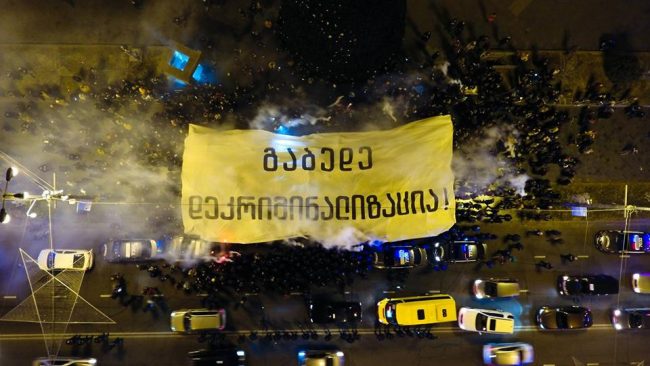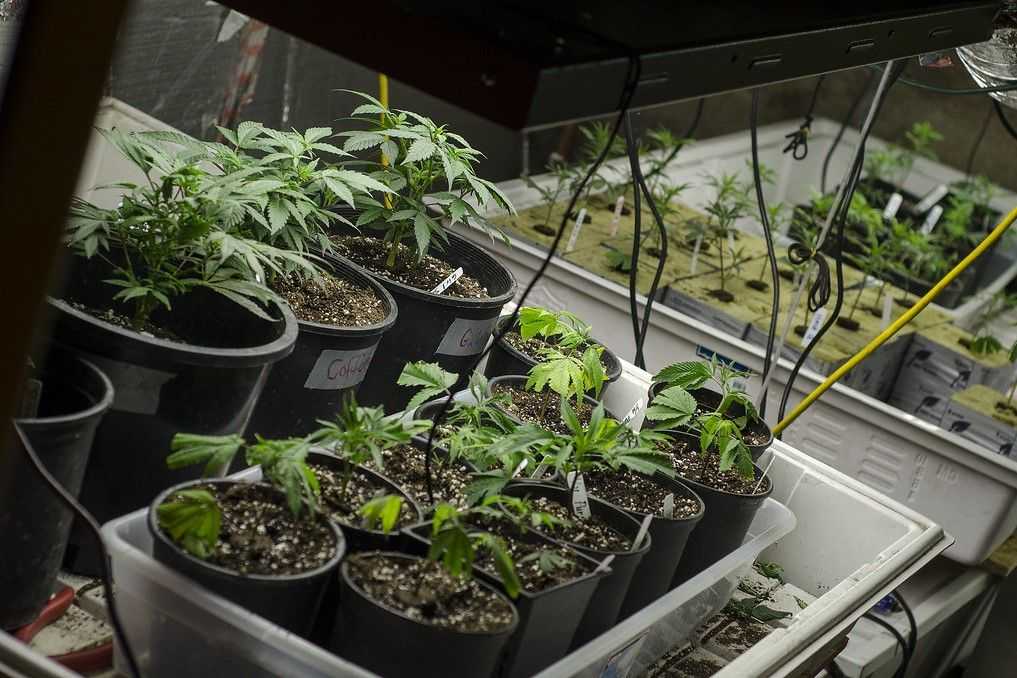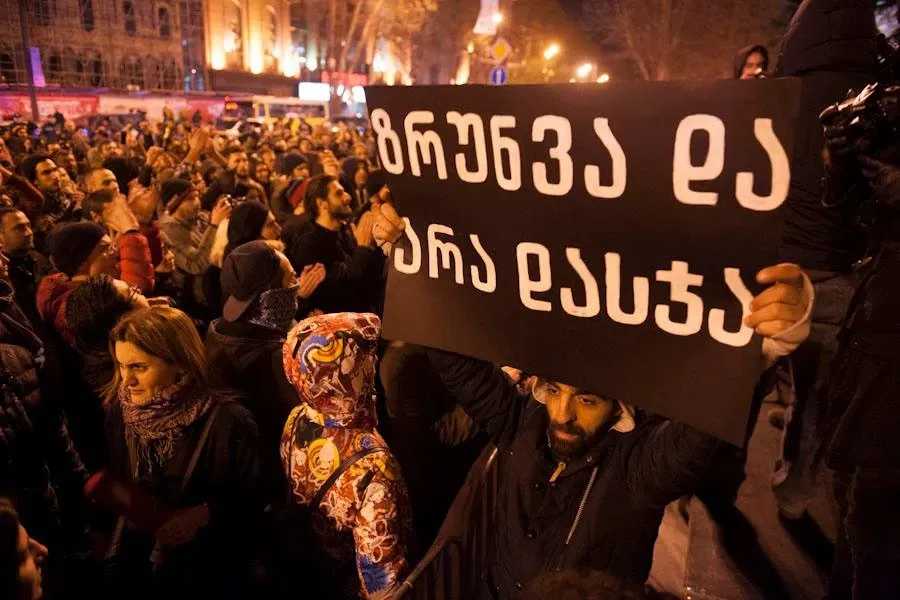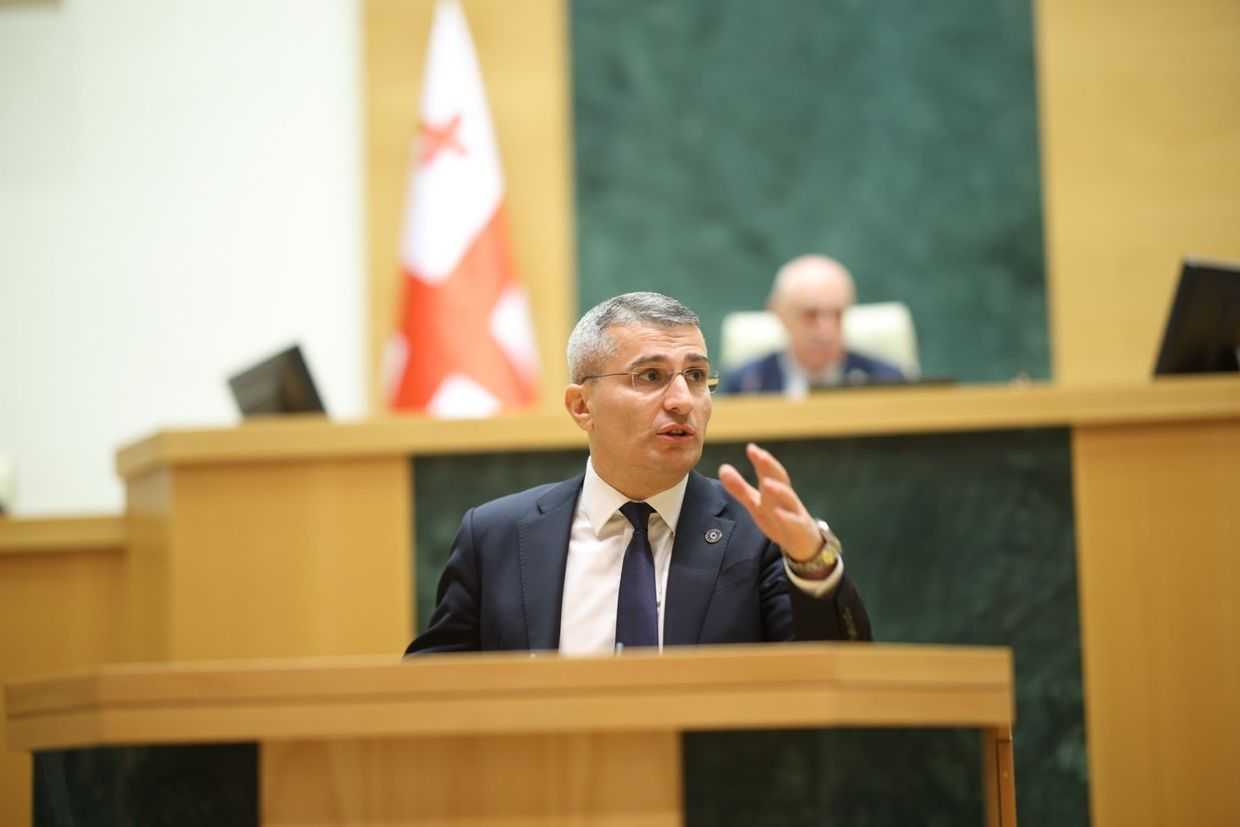

 The future of the drug decriminalisation bill being considered by Georgia’s parliament has become even more uncertain, after the Interagency Council Against Drug Use, an official advisory body set up in 2011, discussed an alternative, ‘gradual decriminalisation’ initiative. Drug policy activists denounced the initiative, as it would not abolish Article 273 of the Criminal Code, which criminalises the use or possession of drugs in small quantities.
The future of the drug decriminalisation bill being considered by Georgia’s parliament has become even more uncertain, after the Interagency Council Against Drug Use, an official advisory body set up in 2011, discussed an alternative, ‘gradual decriminalisation’ initiative. Drug policy activists denounced the initiative, as it would not abolish Article 273 of the Criminal Code, which criminalises the use or possession of drugs in small quantities.
On Tuesday, the council met to discuss the drug decriminalisation bill that was initiated in parliament almost a year ago. The bill has widespread support among activists and rights groups, who have pushed for total decriminalisation, but lawmakers have been reluctant to move the bill forwards.
In its current form, Article 273 treats drug use and possession of small quantities as an administrative offence for the first offence, with criminal charges applying thereafter. Discussion on the ‘gradual decriminalisation’ policy suggested applying criminal charges after the third or fourth offence, instead of after the second.
Georgian Dream MP Akaki Zoidze, one of the initiators of the decriminalisation bill, proposed the new ‘gradual decriminalisation’ policy to the council as ‘decriminalisation is in deadlock and some solution must be found’.
Zoidze told OC Media he tabled the initiative because a majority within law enforcement bodies do not support instant decriminalisation.
‘Because of this, I proposed enacting this option for two years, and discussing total decriminalisation afterwards. Meanwhile, they would be able to see more clearly how the Assessment and Reassurance Committee would work. Afterwards I think we will be able to convince them to abolish Article 273’, Zoidze said.
‘People should not be criminalised for drug use’
Guro Imnadze, a member of the National Drug Platform, which includes more than 40 rights groups and NGOs, told OC Media the initiative can not be described as ‘gradual decriminalisation’, as it does not abolish Article 273.
‘We do not endorse this initiative because we support total decriminalisation of the use of all drugs. This is a matter of principle because we think people should not be criminalised for drug use’, Imnadze said.
He said the initiative Zoidze proposed, which would criminalise the fourth offence, did not gain much support in the council, adding that some suggested even the third repeated offence should be criminalised, Imnadze told OC Media.
He said expectations were somewhat low because of a perception that lawmakers were reluctant to make significant changes.
‘It doesn’t really matter whether they will apply criminal charges on the third or fifth use, considering that repetition is characteristic behaviour for drug users. They don’t use drugs only once but repeatedly’, Imnadze said, explaining that it would not solve the problem.
Davit Subeliani from the White Noise Movement, a leading drug reform campaign group, said that officials were seemingly refusing to make ‘big reforms’, instead offering gradual changes.
He told OC Media that it did not seem like lawmakers were considering decriminalisation as the final goal.
‘If this were the case, they should provide a plan about how they are going to achieve it. At least they should declare that decriminalisation is their goal’, Subeliani, said.
The Interagency Council Against Drug Use is to hold their next meeting on 30 April where the ‘gradual decriminalisation’ bill will be again discussed. Zoidze said he was considering proposing the initiative as a separate bill.
Read More about drug decriminalization bill on OC Media: Georgia’s ‘war against the people’ and the war against a ‘system that stinks’]
Georgia’s ‘War Against the people’
According to the latest report by the United Nations Office on Drugs and Crime (UNODC), Georgia has the third highest problem drug use rate worldwide, after Russia and Seychelles. Relying on data gathered in 2014, the World Drug Report 2017 suggests that around 50,000 people between 18–64 inject drugs in Georgia.
This would make the prevalence of injecting drugs around 2.2%, 2–3 times the estimated European average.
According to 2015 data from the Council of Europe, 30.8% of all Georgian prisoners are in jail for drug offences.
Experts have said that only 10% of all drug users who require help get treatment.
‘We imprison more people than we treat for drugs dependence. At the same time, we know that prison does not correct people. The majority of drug users, 9 out of 10, use drugs again after leaving prison, which is very expensive. For the money the state spends on one prisoner annually, we could include 5 people in the methadone substitution therapy programme’, addiction researcher Davit Otiashvili told OC Media in November.









